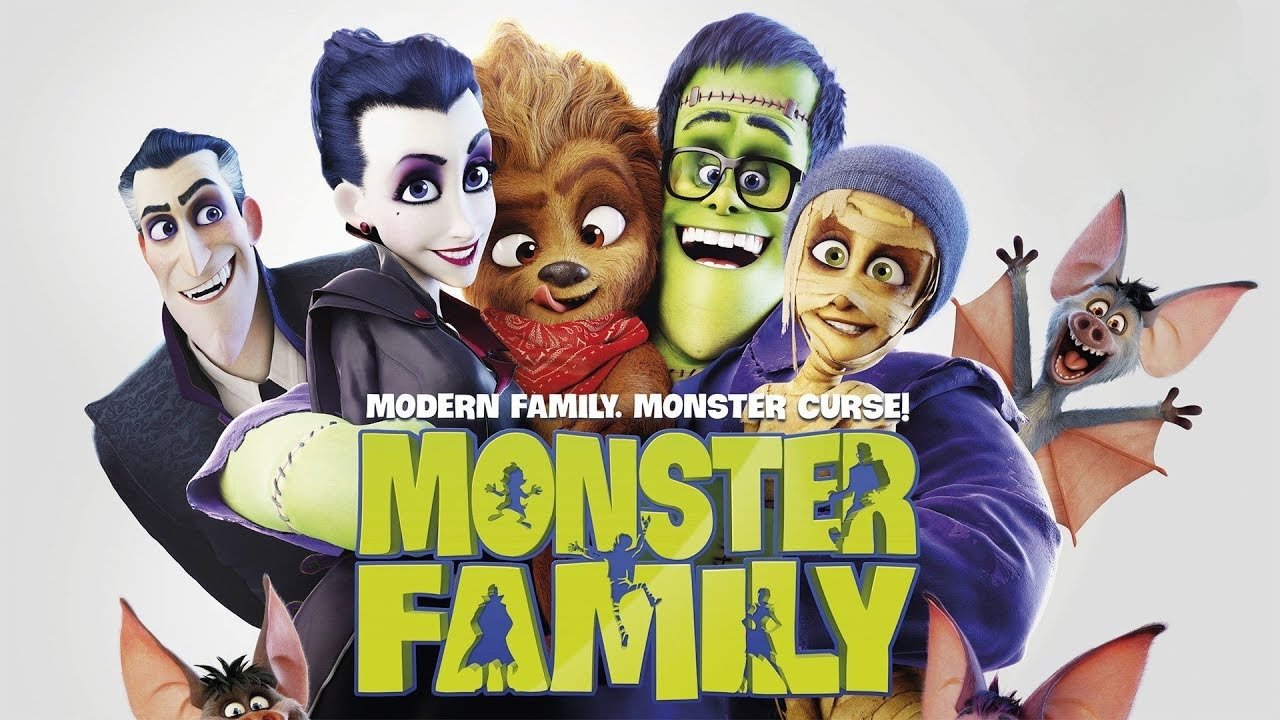When it comes to animated family movies, Monster Family stands out as a unique blend of comedy, horror, and heartfelt lessons that captivate audiences of all ages. This delightful film and its sequel explore themes of imperfection, acceptance, and the importance of family bonds. For American viewers, the story provides not just entertainment but also poignant reflections on modern family challenges, wrapped in an engaging supernatural tale. In this blog, we will explore the essence of Monster Family, its narrative depth, cultural significance, and why it remains a favorite among family-friendly films.
What is Monster Family? An Engaging Blend of Horror and Comedy
At its core, Monster Family follows the Wishbone family, who are transformed into classic monsters—the father becomes Frankenstein’s monster, the mother a vampire, the daughter a mummy, and the son a werewolf. This transformation is symbolic, as it amplifies their individual struggles and imperfections. The story cleverly uses these monster forms to highlight the real-life challenges families face, including pressure, unhappiness, and the pursuit of perfection.
The sequel, Monster Family 2, continues with this theme, focusing on the family trying to maintain happiness despite their flaws. Max, the son, for instance, faces bullying for being shorter than his classmates, while his sister Faye struggles with feeling untalented despite her peers’ achievements. The family’s journey in the film underscores how imperfections are natural and part of the human condition, reminding viewers that true happiness comes from accepting oneself and others.
The Cultural Significance of Monster Family
The evolving portrayal of monsters in media reflects significant cultural insights. According to scholarly research, monsters no longer solely symbolize supernatural horror but instead serve as mirrors for society’s perceptions of human nature and insecurities. The Monster Family films embody this shift by presenting monsters as relatable beings, focusing on their emotional journeys rather than just their scare factor.
David H. Stymeis, a researcher on monster evolution in popular culture, notes, “Monster films have always served as a reflection of the society in which we live… They are special in their ability to discuss societal issues in subtle yet impactful ways”. Monster Family’s comedic and emotional approach invites audiences to look inward and embrace imperfections, aligning with a trend in which monsters become vessels for exploring humanity’s deeper needs and fears.
Themes and Lessons in Monster Family for American Audiences
Beyond action and humor, Monster Family fosters profound messages that resonate with families and children in America who often grapple with societal and personal expectations. A key theme is the pressure to be perfect, a common stressor fueled by social media and cultural ideals. The characters’ supernatural predicament reflects the real-world challenges many families face—communication gaps, self-esteem struggles, and external judgment.
The story’s emphasis on togetherness and acceptance offers a much-needed perspective. As the family faces threats and adventures, they learn that flaws and struggles are natural and that the love and support within family bonds are what truly matter. This emotional acceptance encourages American audiences to appreciate their unique family stories, fostering empathy and resilience among young viewers and parents alike.
Expert Insight: The Power of Imperfection in Family Narratives
To deepen our understanding of Monster Family’s appeal, Dr. Susan Gray, a family psychologist specializing in media influences, offers her perspective: “Films like Monster Family are important because they dismantle the myth of the perfect family. By showcasing characters who are flawed but lovable, they offer children a healthier and more realistic view of family life. This promotes emotional intelligence and self-compassion, which are crucial for mental well-being.”
She adds that the film’s approach to blending horror elements with comedy makes the lessons more accessible and enjoyable, reducing anxiety around imperfections and encouraging open conversations within families about challenges and acceptance.
Why Monster Family Continues to Captivate
Several factors contribute to Monster Family’s lasting popularity. The film’s creative plot combines classic monster lore with contemporary family dynamics, providing both nostalgia and relevance. Its humor is both playful and clever, appealing to kids and adults, while its emotional depth gives it a meaningful core.
Moreover, the film taps into universal feelings—fear of rejection, desire belonging, and the struggle to find one’s place within family and society. It also employs vibrant animation and engaging voice acting, including talents like Emily Watson and Nick Frost, which enhance its appeal.
The sequel’s expansion on these themes, introducing new characters and challenges, keeps the narrative fresh while reinforcing the original’s messages. This balance of continuity and innovation keeps audiences coming back, eager for more adventures with the Wishbone family.
The Takeaway: Embracing Imperfection with the Monster Family
In conclusion, Monster Family is much more than just an animated movie. It acts as a mirror reflecting the imperfections and strengths inherent in every family. By combining humor, heartfelt storytelling, and relatable monster mythology, it delivers a powerful message about self-acceptance, resilience, and the enduring power of family love.
For American families seeking content that entertains while promoting positive values, Monster Family is a shining example. It encourages embracing imperfection as an essential part of life and finding strength within the family unit. This message is not only comforting but also empowering in a world that can often demand unrealistic standards.
So, whether watching with children or enjoying a nostalgic animation trip, Monster Family offers a memorable experience filled with laughter, lessons, and love—a perfect recipe for family movie night.
you may also like
Discovering Collateral Beauty: Finding Light Amidst Life’s Hardships

